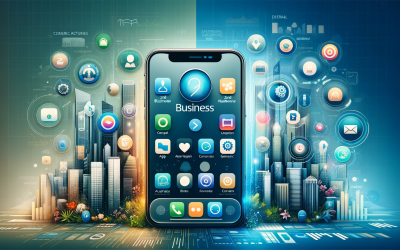In an age dominated by digital communication, mobile devices are integral to corporate success. From senior executives to field technicians, smartphones and tablets are vital tools for daily operations. With the rise in BYOD (Bring Your Own Device) culture and the frequent supply of devices by companies, there’s an ongoing debate about corporate mobile insurance. Is it truly worth the investment, or are there other ways to ensure communication continuity? This article delves into the intricacies of corporate mobile insurance, helping businesses make informed decisions.
The Pros of Mobile Insurance
Mobile insurance, at its core, offers peace of mind to businesses. With such insurance in place, companies are shielded from unexpected costs.
1. Damage Protection: It’s not uncommon for devices to suffer from accidental drops or spills. Insurance often covers repair or replacement costs, ensuring minimal disruption to work.
2. Theft and Loss Coverage: Devices, especially high-end smartphones, can be prime targets for theft. Insurance can provide financial protection in such instances.
3. Budget Predictability: With insurance, companies can better predict their annual technology-related expenses. There are no sudden financial hits from having to replace multiple devices.
However, like all policies, mobile insurance isn’t without its downsides.
Potential Pitfalls of Insurance
Understanding the limitations and potential drawbacks is essential for companies to gauge the real value of insurance.
1. Premium Costs: Over time, the cumulative cost of insurance premiums may surpass the potential savings from claim benefits, especially if claims are infrequent.
2. Excess Charges: While insurance might cover damage or theft, there’s often an excess charge to pay when making a claim, which can be substantial.
3. Time Delays: Processing insurance claims can take time. This could result in extended periods without essential devices, hindering business operations.
Embracing Alternative Solutions
While mobile insurance has its merits, modern solutions like BenkoPhone offer businesses a different approach to communication continuity. By providing a virtual mobile number that supports voice calls, txt messages, and picture messages, BenkoPhone ensures that even if a device is damaged or lost, communication isn’t interrupted. Employees can swiftly switch to another device, be it personal or supplied by the company, ensuring seamless business operations.
Making the Right Choice
Deciding on mobile insurance requires a careful consideration of the unique needs and operational structure of a business. For companies heavily reliant on uninterrupted communication, alternative solutions like BenkoPhone can provide both flexibility and assurance. It’s essential to weigh the costs and benefits of insurance against the potential risks and the available alternatives.
In conclusion, corporate mobile insurance can offer substantial protection, but it’s not the only avenue to ensure business continuity. Exploring modern solutions and being informed is the key. Looking for a way to keep your team connected, no matter the device? Discover the features of BenkoPhone today.




